Whether you love a dog, a cat, or a more exotic creature from the animal kingdom, our pets are dear to us —frequently considered members of the family. So it stands to reason that the doctors who make sure our animals are living their best (and longest) lives are celebrated. World Veterinary Day, held on the last Saturday of April every year, honors the noble profession of veterinarian.
Lehigh University has been the starting point of many veterinarians’ academic journeys. Below, some of them tell their stories and offer advice. One thing all these alumni have in common (besides Lehigh): they all wanted to be vets from childhood!
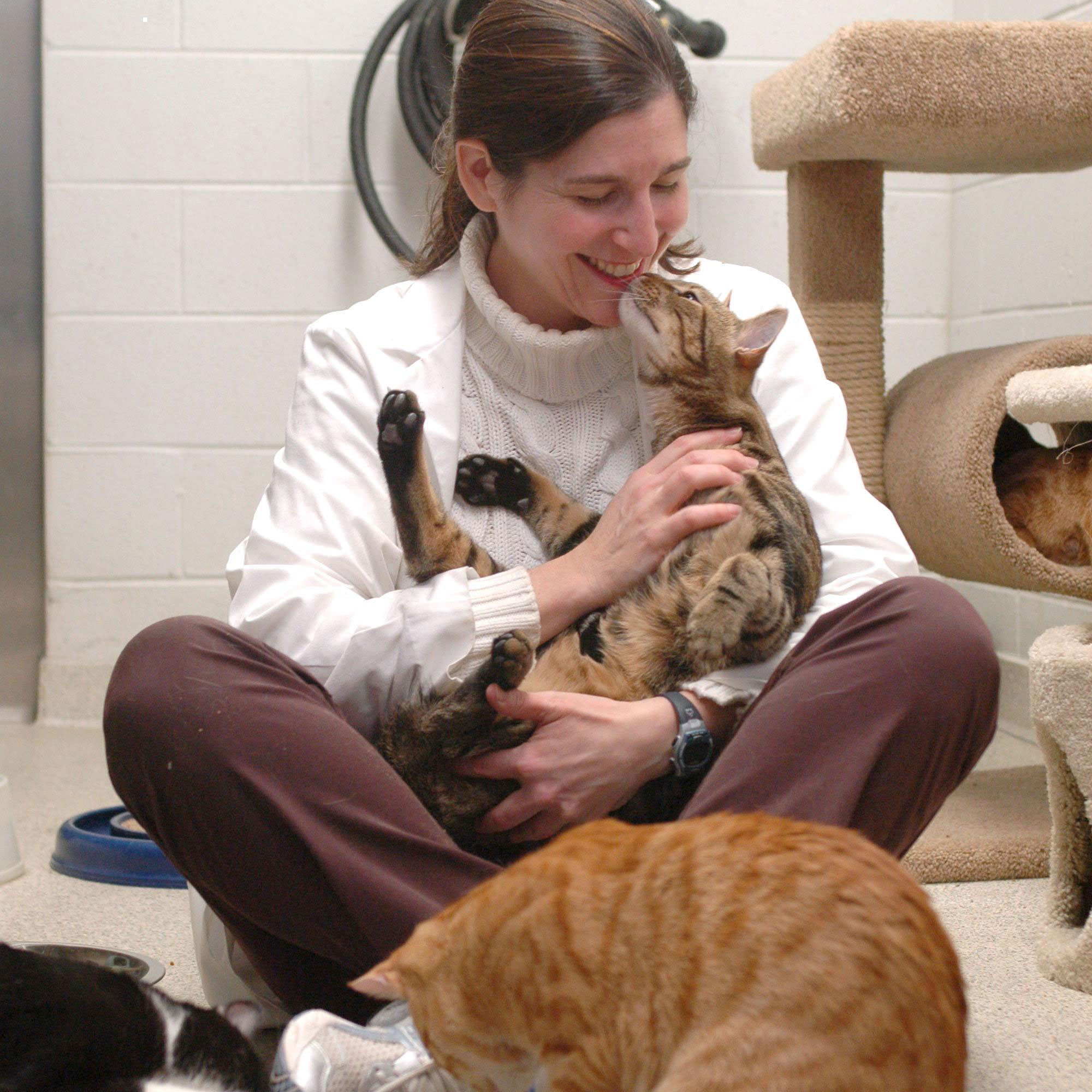 Lillian Aronson ’88 VMD, B.S. biology
Lillian Aronson ’88 VMD, B.S. biology
Vet school: University of Pennsylvania
Professor of Surgery, founder and director of renal transplantation program at UPenn School of Veterinary Medicine
Training the next generation
“I did my surgical residency at University of California – Davis, training under Dr. Clare Gregory, who was the founder of renal transplantation for companion animals. I decided to stay in academic medicine and came back to Penn.
Saving pets in renal failure
Since we started the renal transplantation program for cats in 1997, we’ve done close to 190 cases. Cats can live with one kidney. Donor cats are adopted from shelters by the hospital and stay there until there is a potential recipient in need of a transplant. The recipient’s owner adopts the donor cat after surgery and gives them a lifelong home.”
Wellness visits are important!
My advice to pet owners is to go for yearly wellness visits. Animals are very good at hiding when they have problems, so if you think something’s going on, don’t ignore it.”
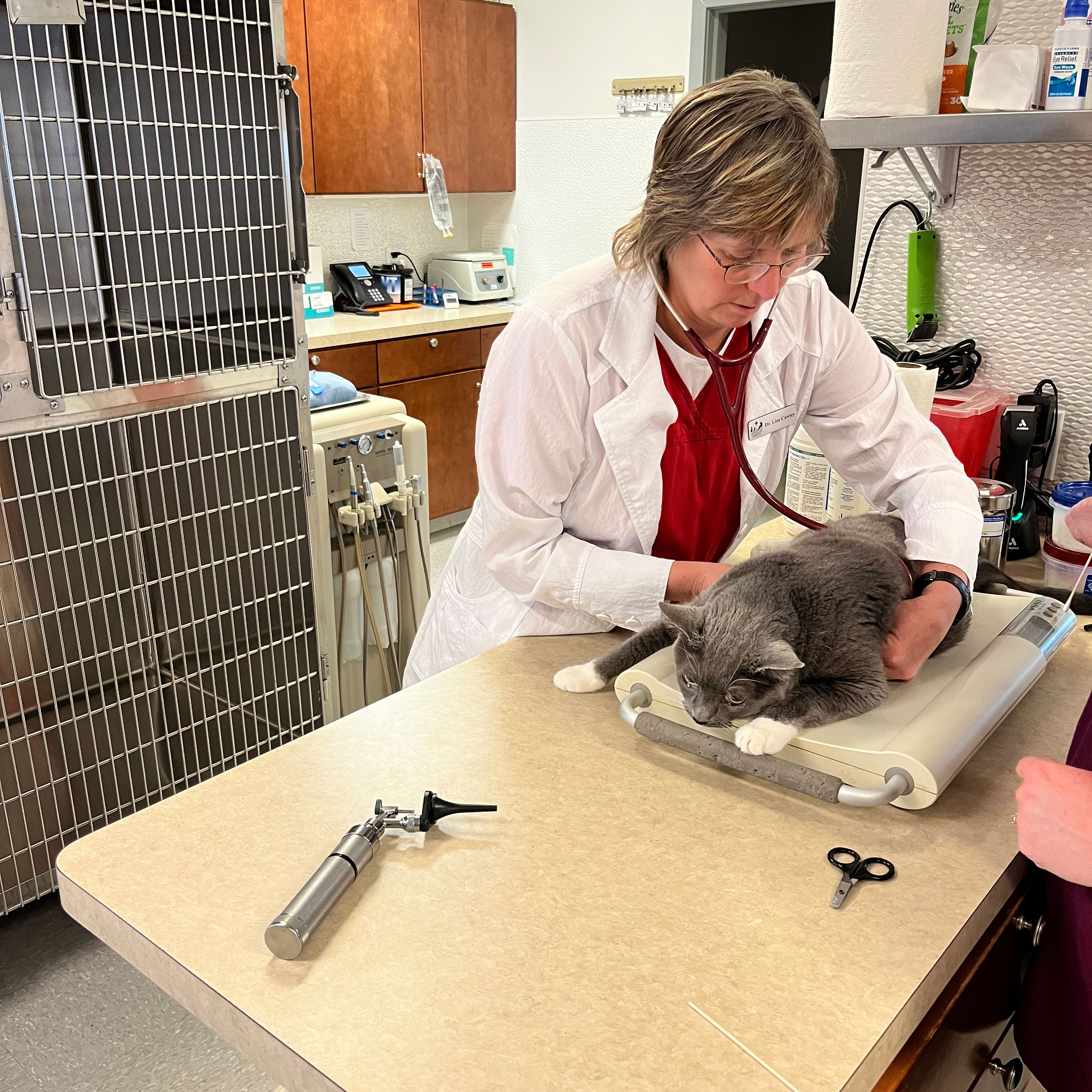 Lisa Cawley VMD ’88, B.S. biology
Lisa Cawley VMD ’88, B.S. biology
Vet school: University of Pennsylvania
Owner, Christmas City Veterinary Hospital, Bethlehem, PA
Chonky cat (or dog)?
“Obesity is a very common health concern in pets, often due to lack of exercise and feeding excessive calories and carbohydrates. A good place to start for weight loss is to slowly reduce the calories/carbs, or substitute healthier alternatives, and to increase exercise. Providing affection or play instead of a food treat is also helpful!”
Saying goodbye: The worst part of pet ownership
“When pets are getting older, I tell people to try to accept that and celebrate the excellent care they’ve provided to allow the pet to attain their advanced age, rather than being sad and having unrealistic expectations about the cycle of life.”
Grateful to be of service
“I have had an amazing, fulfilling career as a veterinarian. I hope the next generation of veterinarians will be as grateful as I am for the opportunity to impact so many lives and families.”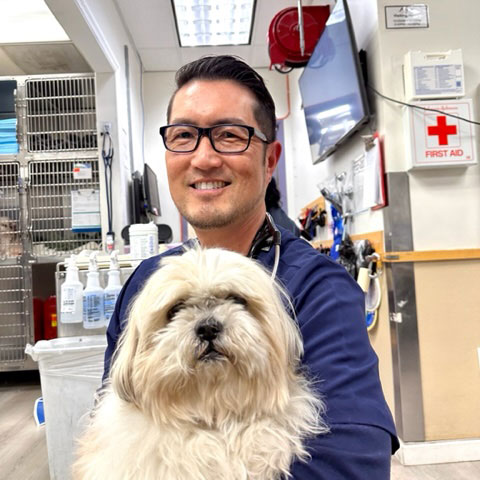
Richard Chu ’92 DVM, B.S. behavioral neuroscience
Vet school: Oklahoma State University
Associate veterinarian, San Francisco Animal Medical Center, San Francisco, CA
Veterinary 911
“In my previous position, I was an overnight emergency veterinarian. It was exciting — never a dull moment! — and rewarding to provide care for pets of the homeless. We also treated injured wildlife, from raccoons, opossums, and skunks to various species of birds.”
Best advice
“Brush your pet’s teeth! It prevents periodontal disease.”
The dark side of being a vet
“People think veterinarians have the best jobs because they get to play with puppies and kittens all day. What they don’t know is that veterinarians have a high suicide rate. They’re under an incredible amount of stress and work long hours. I feel responsible when I’m unable to save a pet’s life. It can be very emotionally draining euthanizing pets and being compassionate and empathetic with the owners. There’s a website, Not One More Vet (www.nomv.org) that is a resource for veterinary professionals who might need some support.” 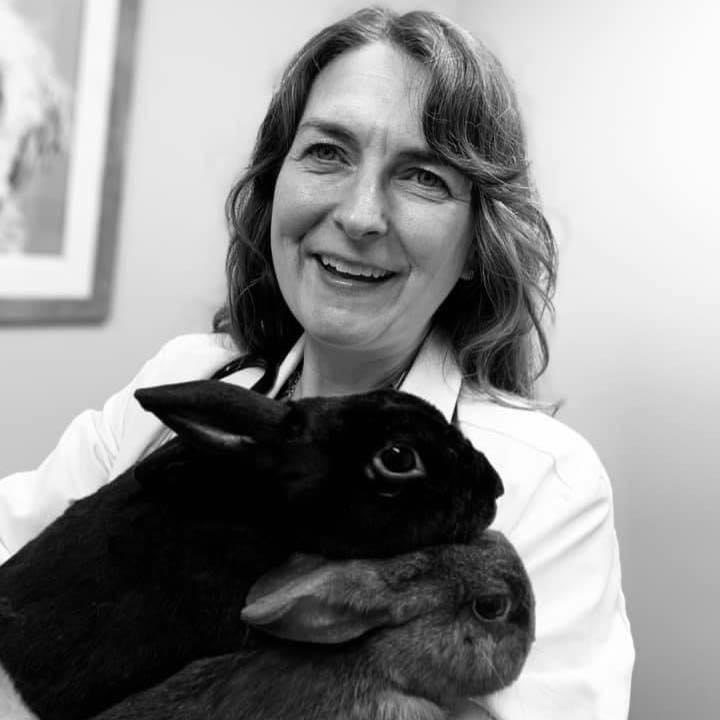
Aubrey Fitch ’98 VMD, B.S. behavioral neuroscience
Vet school: University of Pennsylvania
Associate Veterinarian, Bethel Veterinary Hospital, Bethel, CT
Putting her behavioral degree to good use
“I have a special interest in behavior medicine and offer behavioral consultations for dogs and cats. I also offer pre-pet purchase counseling for people who are interested in getting a pet but want to make sure they know what they’re getting into.”
Insurance!
“I recommend getting pet insurance when animals are young and healthy, because many policies do not cover pre-existing conditions.”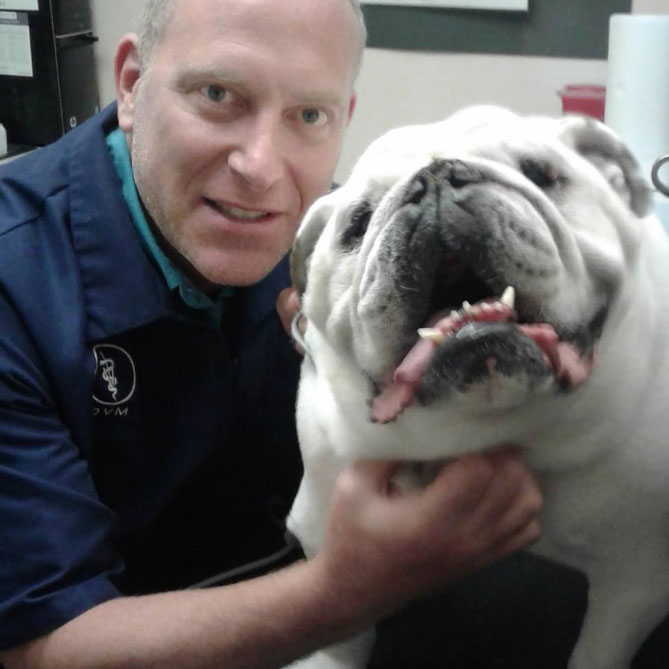
Andrew Frishman ’94 DVM, B.S. behavioral neuroscience
Vet school: University of Tennessee at Knoxville
Owner, Progressive Veterinary Hospital, Somers, NY
Things to consider when choosing a pet
“Some factors to consider when choosing a pet are lifestyle (does the time and energy required fit in with your daily routine?), living situation (does the pet need a lot of room to play or a smaller space?), budget (pet ownership can be expensive, including costs for food, veterinary care, supplies), personality (are you active and spend a lot of time outdoors, or more low-key?), allergies (consider a hypoallergenic pet or one that doesn’t shed, like a reptile or fish), and commitment (some pets live for decades — make sure you’re prepared to care for the pet over the course of its life!)”
Homemade food?
“It can be a good idea to make homemade food for your dog or cat, but it’s important to ensure that their diet is nutritionally balanced and meets their dietary needs. Consult your veterinarian or a veterinary nutritionist.”
Breaking bad habits
“Every bad habit has a trigger that sets off the behavior. The first step is finding the trigger, and often, that requires consulting a trained animal behaviorist.”